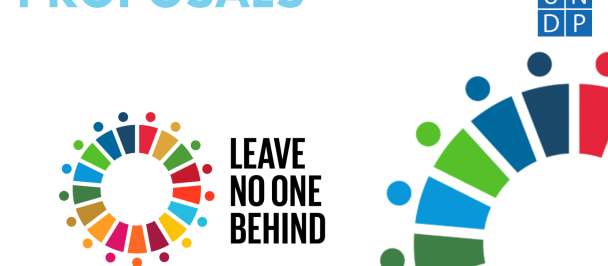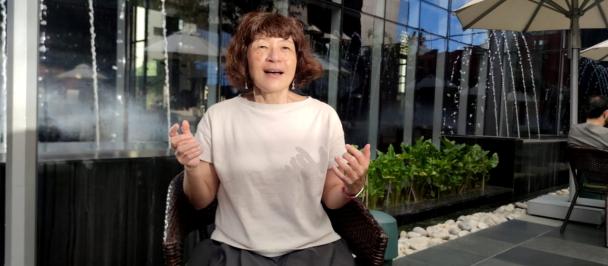How energy is transforming communities in Bajura
August 29, 2023
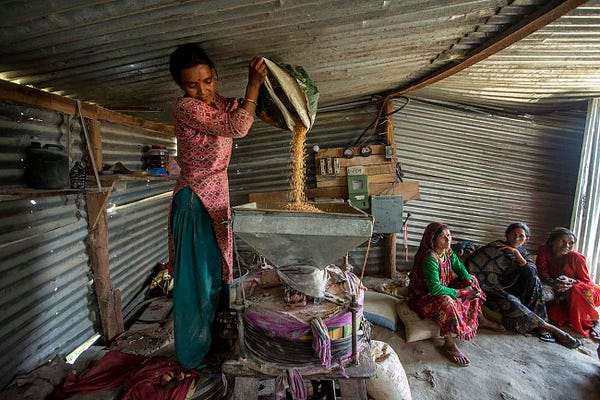
Hiukala Saud, 35, from Tribeni Municipality-3 in the remote village of Bajura, stands out among her peers as a miller. As a pioneering entrepreneur who owns and operates a small mill powered by a micro-hydro plant, she has smashed all gender stereotypes.
Yet, even the most resilient champions can be tested by the hands of fate. The micro-hydro, the only lifeline to power the village, met an unprecedented tragedy in 2015. Struck by a flash flood, the civil structure of the plant was damaged, leading to disruption in power generation. Over 1,200 residents and entrepreneurs like Saud faced a serious crisis.
In the past five years, in the remote districts of Bajura and Jumla, 14 of the 34, micro hydro plants have been damaged by flash floods, landslides and various other factors. Constructed alongside some of the highly vulnerable mountains and rivers, the hydro plants are extremely sensitive to impact of climate change. Restoring these lifelines was crucial for infusing hope and enthusiasm to the women like Haikula, and for giving continuity to the economic and social transformations that had begun to take root within the villages.
Responding to this need, UNDP, in partnership with the Alternative Energy Promotion Center (AEPC) and with funding from the Japanese government, rebuilt the 14 damaged micro hydro plants resuming electricity supply to 13,362 off-grid households (70,000+ people) in the remote districts of Bajura and Jumla. In addition, the reconstruction of the plants also led to construction of irrigation canals, which are now benefiting hundreds of extremely food-insecure households.
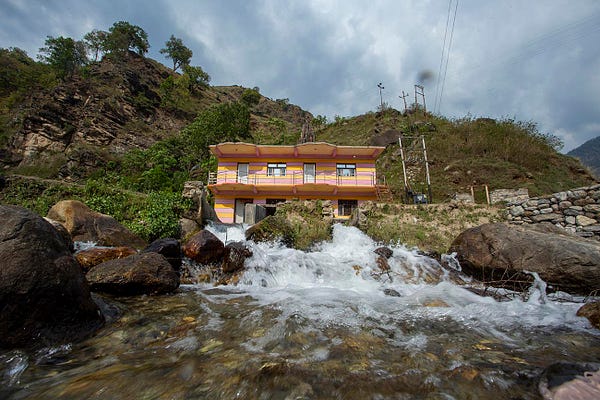
Bajura is one of Nepal’s remotest districts. Seventy-five percent of the district’s total 18,539 hectare land is without access to irrigation. One of the major challenges here is to supply food for its population of 138,523. As much as 55 percent of households in the district reel under a shortage of food. Most young men are forced to travel to India for employment — this is a bitter reality.
The restoration of the damaged micro-hydro plants and a steady supply of affordable renewable energy have turned around the lives of many women like Hiukala in the remote villages.
“Earlier, we had to face a lot of problems when we had to go to mill several miles away to grid our grains. We would have to sometimes spend the night there or return empty handed. But when we had a stable power supply resumed, I decided to install this mill at my own home. This has saved a lot of our time,” Saud said. “It has benefitted the whole surrounding settlements. We are thankful to everyone for all the support.”
Notably, the enhanced access to energy has also added to the women’s self-respect and confidence, while also breaking the age-old gender stereotypes.
“Those who would previously question how women ran the mills now praise us. I have found this profession easy. I don’t think there’s any work that women can’t do,” said Saud, a mother of two sons and a daughter. “I work at the mill while my husband carries out household chores. Because of the mill, I am able to afford my children’s education at English schools and I have also made some savings.”
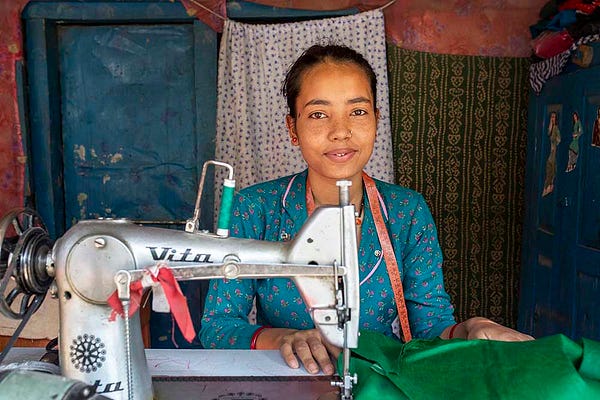
Story of Krishna Pariyar, 21, is similar. Pariyar, a resident of Pilichaur in Jagannath Rural Municipality-1, Bajura, saw her life took a turn for good when she was able to switch to electric-powered machines following a steady supply of power form a nearby micro-hydro plant. “I would sew around eight pairs of clothes with the manual machine,” she said. “Now, with an easy supply of electricity, I make up to 18 pairs.”
The Badigaad Micro Hydro Plant, which powers several hundred households and enterprises like that of Pariya in the village, was badly damaged when a flash flood in 2020 swept away the structure of the hydropower project, pushing the villages into complete darkness.
Pariyar now aims to expand her shop. “If my business runs at this rate, I aim to add more machines and expand the shop,” she said, noting that the hydro project is back in operation after maintenance with help from the Japanese government. “My performance has increased substantially since the resumption of stable supply of electricity,” Pariyar said. “My income and savings have increased.”
Dayaram Regmi of Budhiganga Municipality-7, another entrepreneur, exemplifies the positive impact of enhanced access to renewable energy. A returnee migrant worker who spent four years working at a noodle factory in Malaysia, Regmi has opened his own Food and Chowmein Factory in the village. “Back in Malaysia, I used to do all the work at the factory and I thought I could do the same back home and started this factory,” Regmi said. Regmi brought the machine from India but one problem always nagged him. The interrupted supply of electricity would disrupt work and cause a loss.
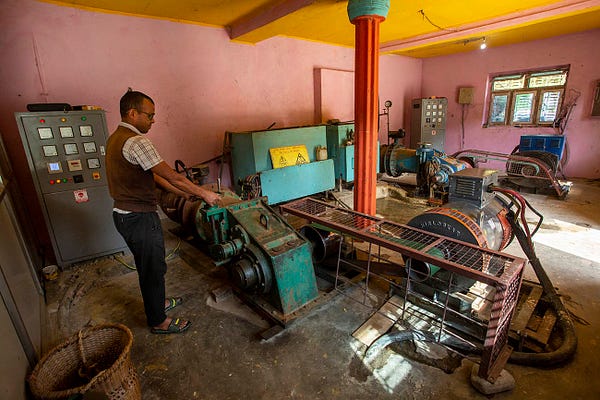
“When power is out after you mix the flour with water, then the material goes to waste. I faced such a problem a lot previously,” he said. These days, however, with the rehabilitation of the power plant, there’s continued supply of electricity with adequate voltage.
Today, Regmi’s business supplies raw material for noodles in areas from Budhabagar in Achhan to Chhidedaha, Khaptad. “It’s not hard for me to make an income of Rs 40–50,000 ($300-$400) a month,” he said.
Regmi’s business is one of 46 factories powered by the 200KW Malagad hydropower project, which was damaged by the floods of 2020. “After reconstruction, we are supplying power to 2,370 households,” said Man Bahadur Thapa, chair of Malagad hydropower cooperative.
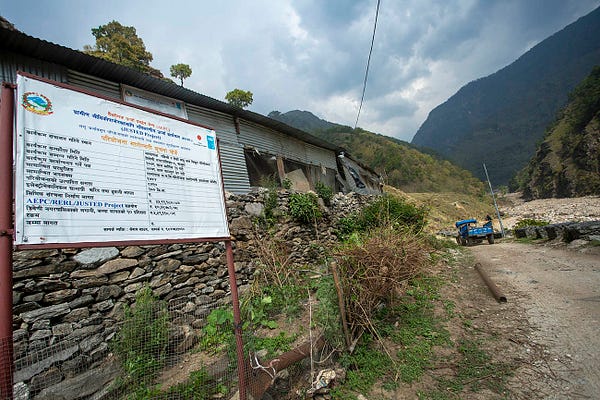
The changed perspective noticed by Saud is notable across the villages that have seen increased engagement of women and marginalized communities in businesses. The impact radiates beyond the business realm, transforming gender norms, shifting power dynamics, and empowering women. The once-muted voices of Dalits and vulnerable families have gradually come out with confidence.
The changed perspective noticed by Saud and her peers is notable across the villages that have seen increased engagement of women and marginalized communities in businesses, including those traditionally dominated by men. The impact therefore radiates beyond the business realm, transforming gender norms, shifting power dynamics, and empowering women, Dalits and other marginalized people. The project has in many ways contributed to bring out with confidence the once-muted voices of Dalits and marginalized communities.
Bajura’s journey is a testament to the boundless potential of energy empowerment. The district paves the path to a future where energy isn’t just a power source, but a catalyst for social evolution. In the heart of Bajura’s empowering hydropower revolution, energy becomes a conduit for change, illuminating the path towards a brighter, equitable tomorrow.
About the Project
The initiative to rehabilitate the damaged micro hydro plants is part of a UNDP project, Renewable Energy for Rural Livelihoods (RERL), in partnership with Alternative Energy Promotion Center and with the funding from the Government of Japan. The project aims to help Nepal implement its Nationally Determined Contribution (NDC) pledged under the UN Paris Agreement on Climate Change.
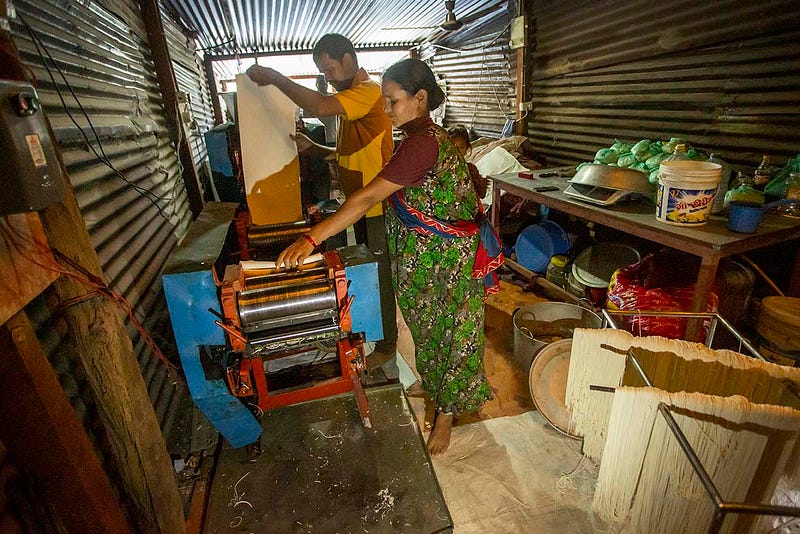

 Locations
Locations

